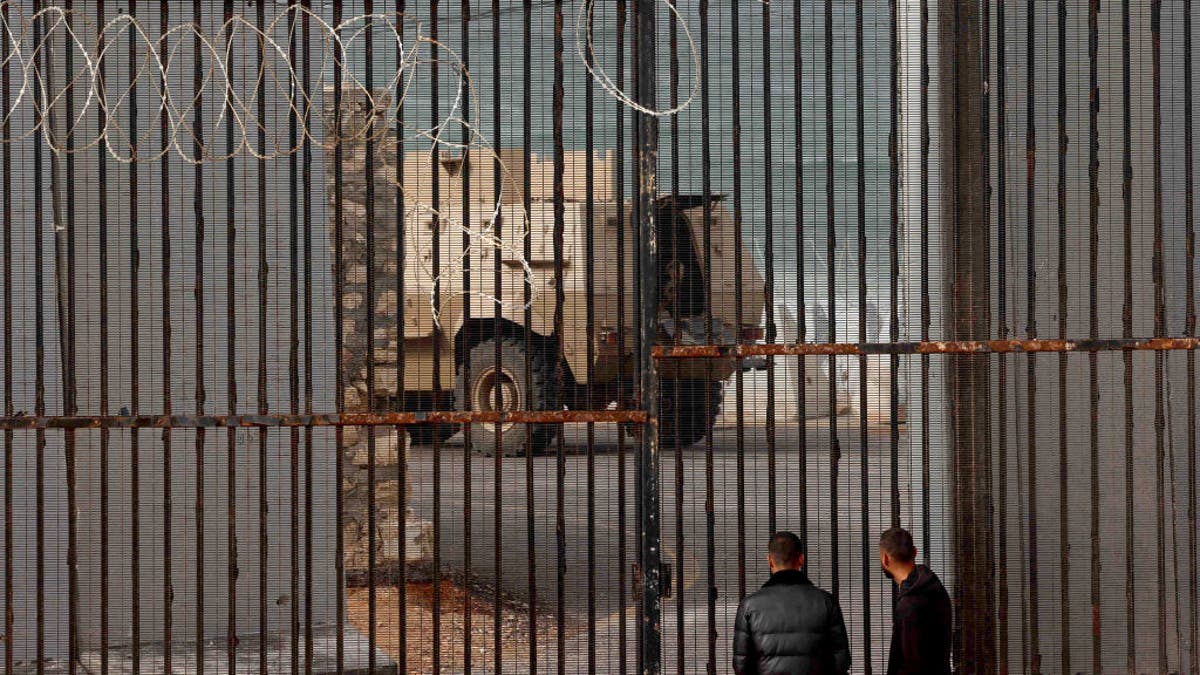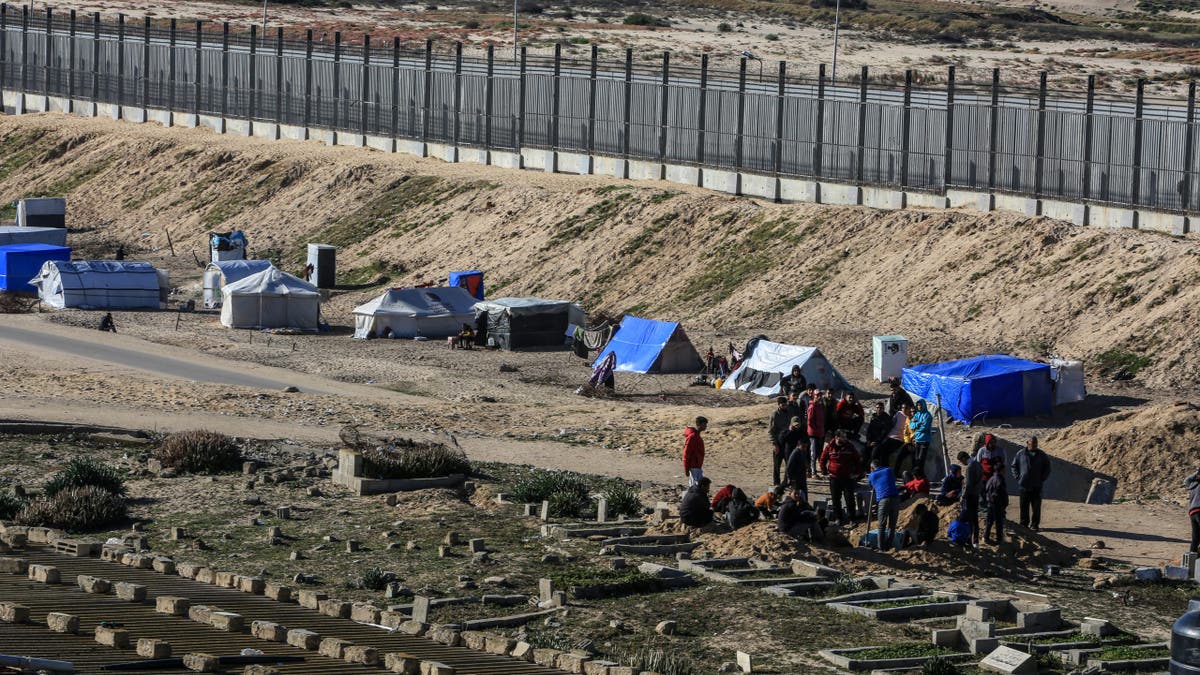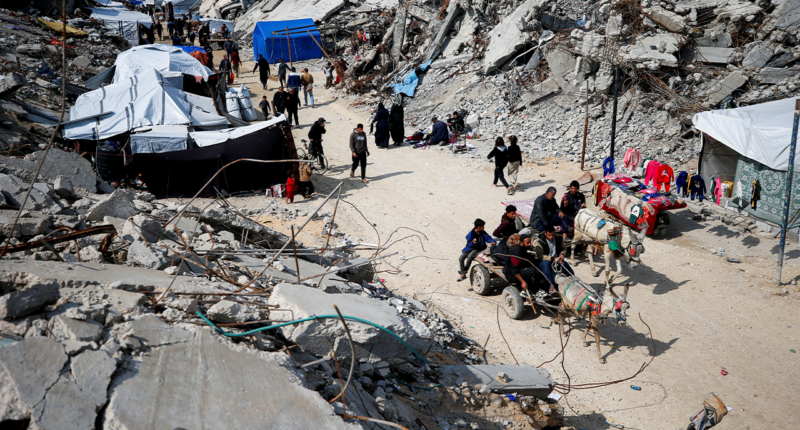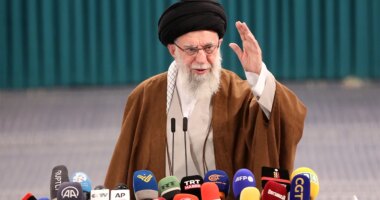Some Palestinians in Gaza have expressed their desire to leave the Hamas-controlled territory, as reported by the Center for Peace Communications. The ongoing conflict in the region has led to a sense of desperation among the residents.
Despite reports of Egypt rejecting President Donald Trump’s proposed resettlement plan, which aims to transform Gaza into a luxurious destination in the Middle East by relocating its over 2 million Palestinian inhabitants, Gazans are still hopeful for a way out.
According to statements given to Fox News Digital, many Gazans are in favor of Trump’s proposal and would welcome the chance to leave Gaza if given the opportunity. However, the uncertainty remains whether they would be allowed to return to their homeland once they depart.
“I will be living in tents for 10 years. Egypt was responsible for rebuilding Gaza after past wars – and you can still see some of the rubble from the Israeli military campaign in 2008. I’d rather leave and gain 10 years of life than wait for some plan to be implemented while I live in a tent,” said Walid, a 29-year-old from Nuseirat Camp in northern Gaza, told Fox News Digital via WhatsApp in an interview facilitated by the Center for Peace Communications (CPC).
Joseph Braude, founder of CPC, a nonprofit that supports peace activists seeking freedom from terrorist domination of their societies, said: “Gazans are trapped by Hamas in unlivable conditions. It is unconscionable for anyone to ignore the desperate pleas of the men, women and children who want to voluntarily leave Gaza. These Gazans support President Trump’s call to open the border so they can pursue a better life free of war and destruction. If Hamas opened the border, the world would see a mass exodus comparable to the fall of the Berlin Wall.”
With no homes left, no functioning government and no guarantee that war won’t erupt again, some Gazans are daring to voice their support for Trump’s proposal, which would allow them to relocate to other countries, including Egypt and Jordan, at least for the decade-long rebuilding process estimated by U.S. officials. This is despite the dangers of speaking out against Hamas.

Displaced Palestinian men watch as an Egyptian army armored personnel carrier drives near the border fence between Gaza and Egypt, on Feb. 16, 2024, in Rafah, in the southern Gaza Strip. (Mohammed Abed/AFP via Getty Images)
Raji Sourani, a leading rights lawyer from Gaza, criticized Trump’s stance in an interview with the Associated Press, “This is the first time in history that a U.S. president speaks publicly and frankly about committing one of the most serious crimes,” he said.
Walid dismissed the claim that Trump’s plan amounts to “ethnic cleansing,” a phrase widely used in the international media. “Even those who are against the plan know Gaza won’t be empty. The ones pushing this propaganda are the same ones who supported Oct. 7. They try to spread slogans like ‘We are resisting, staying forever.’ But the people who are not involved in politics won’t oppose an idea that could finally end this war for them.”
Despite the widespread suffering, Hamas refuses to relinquish control. Mohamad, a displaced father in Gaza City, described a lawless society where Hamas fighters only appear when releasing hostages or suppressing dissent. Like many others, Mohamad is waiting for any corridor to open so he can escape.

Makeshift tents set up near the heavily fortified security fence with Egypt on March 8, 2024, in Rafah, Gaza. (Abed Rahim Khatib/Anadolu via Getty Images)
“If they open the gate, half of Gaza will leave,” he told Fox News Digital. “The other half will stay, but not because they love Hamas. Some will stay because they still have a house, a job, or family members who can’t leave.”
As post-war plans for Gaza take shape, Mohamad’s question remains: “If Gazans want to leave, why won’t anyone let them?”

















